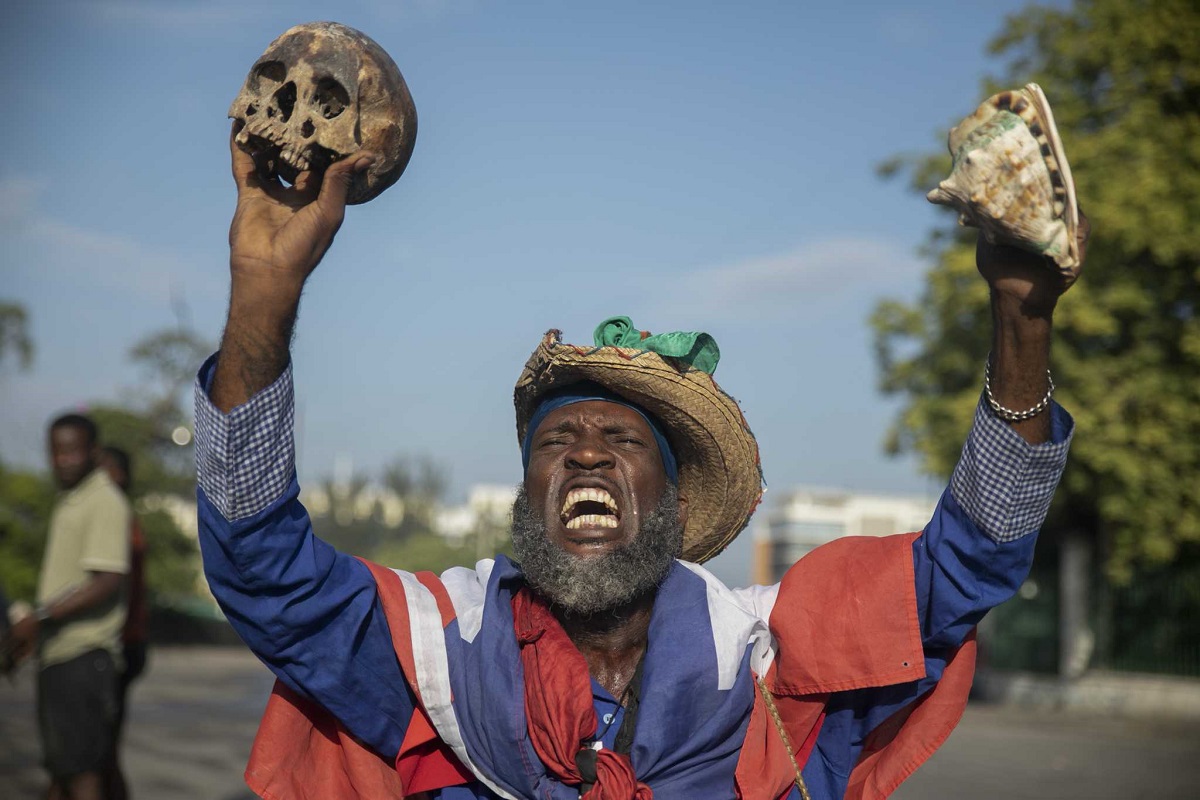- UN Secretary-General Antonio Guterres demands “armed action” in Haiti.
- The Varreux terminal in Port-au-Prince has been blocked by gangs for several weeks.
- This has caused severe fuel and water shortages and hindered efforts to contain a dangerous cholera outbreak.
The president of the UN has demanded “armed action” in Haiti and warned that the situation there is “nightmarish,” especially in the capital city of Port-au-Prince.
In order to loosen the hold that gangs have over a port that is essential to letting petroleum supplies into the country, UN Secretary-General Antonio Guterres stated on Monday that he believed such action was required.
The Varreux terminal in Port-au-Prince has been blocked by gangs for several weeks, which has caused severe fuel and water shortages and hindered efforts to contain a dangerous cholera outbreak.
For the people of Haiti, especially in Port-au-Prince, the situation is “totally nightmare-like,” Guterres remarked.
“I believe that we need an armed action in the current circumstances to release the port and to allow for the establishment of a humanitarian corridor,” he said.
“I believe that we need not only to strengthen the [Haitian] police – strengthening it with training, with equipment, with a number of other measures.”
This month, Prime Minister Ariel Henry requested assistance from the international world to create a “specialized armed force” to stop the violence, which has been worse since President Jovenel Moise’s killing in 2021 left a political vacuum.
However, a large number of Haitian demonstrators and leaders of the civil society have opposed the idea of outside involvement, arguing that history has shown that outside forces “bring more problems than answers.”
A cholera outbreak in 2010 that claimed the lives of approximately 10,000 people was related to UN soldiers, and years of foreign efforts to strengthen Haitian democratic institutions and law enforcement capabilities have mostly failed.
The current problem has also drawn attention to concerns about Henry’s legitimacy, as he assumed the prime ministership only a few weeks after Moise was killed.
Over the past few weeks, there have been protests in Haiti, with many clamoring for Henry to resign.
The delivery of security tools purchased by the Haitian government, including “tactical and armored vehicles” for use by the Haitian National Police, was announced by Canada and the United States on Saturday (HNP).
Global Affairs Canada, a federal agency, said in a statement that the equipment “will assist the HNP in their fight against criminal actors who are fomenting violence and impeding the flow of critically-needed humanitarian supplies, delaying attempts to stop the spread of cholera.”
Henry expressed his appreciation for the transfer on Twitter and stated that Haiti would continue to rely on its collaboration with both nations “in order to strengthen the capabilities of our police force.”
The international community should “examine as a matter of urgency” Haiti’s request for a specialized armed force, Guterres had pleaded on October 9. The government of US President Joe Biden announced last week that it was considering the proposal.
Additionally, US Secretary of State Antony Blinken declared on Wednesday that Washington would quicken the distribution of humanitarian aid to Haitians, nearly half of whom, according to the UN, is suffering from a severe scarcity of food.
Blinken continued by saying that individuals “engaged in the management of street gangs and other Haitian criminal organizations” were subject to new immigration restrictions. He made no mention of which officials were under attack.
The House of Representatives and the Senate will receive bipartisan legislation on Monday to identify “relationships between criminal gangs and political and economic leaders in Haiti” and to impose sanctions on such people.
Democratic Senator Tim Kaine, one of the resolution’s co-sponsors, said in a statement: “This measure targets these criminals who perpetrate awful atrocities on the Haitian people, as well as the influential public figures who employ these gangs for their own benefit.”
Meanwhile, the US ambassador to the UN stated that the US and Mexico were drafting two UNSC resolutions in response to the situation during a special Security Council (UNSC) meeting on Haiti on Monday afternoon.
According to Linda Thomas-Greenfield, the first would impose financial sanctions on Haitian “criminal actors,” such as influential G9 gang boss Jimmy “Barbecue” Cherizier, to freeze their assets and deny them access to weapons.
The UN representative declared that “Cherizier is directly to blame for the severe fuel crisis that is hurting the country.”
She continued by saying that the second resolution would “authorize a non-UN, multinational security assistance operation to help better the security situation and permit the passage of critically needed humanitarian aid.”
According to Thomas-Greenfield, “this resolution will suggest a limited, carefully-scoped, non-UN mission headed by a partner country,” adding that support for such a mission would be required from UN member states, who would be asked to contribute personnel, equipment, and other resources.
When the resolutions will be polished and presented is unknown.
[embedpost slug=”us-mexico-to-seek-help-from-un-to-restore-peace-in-crisis-hit-haiti”]





















